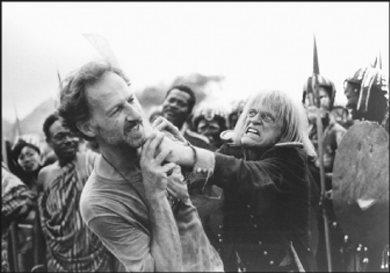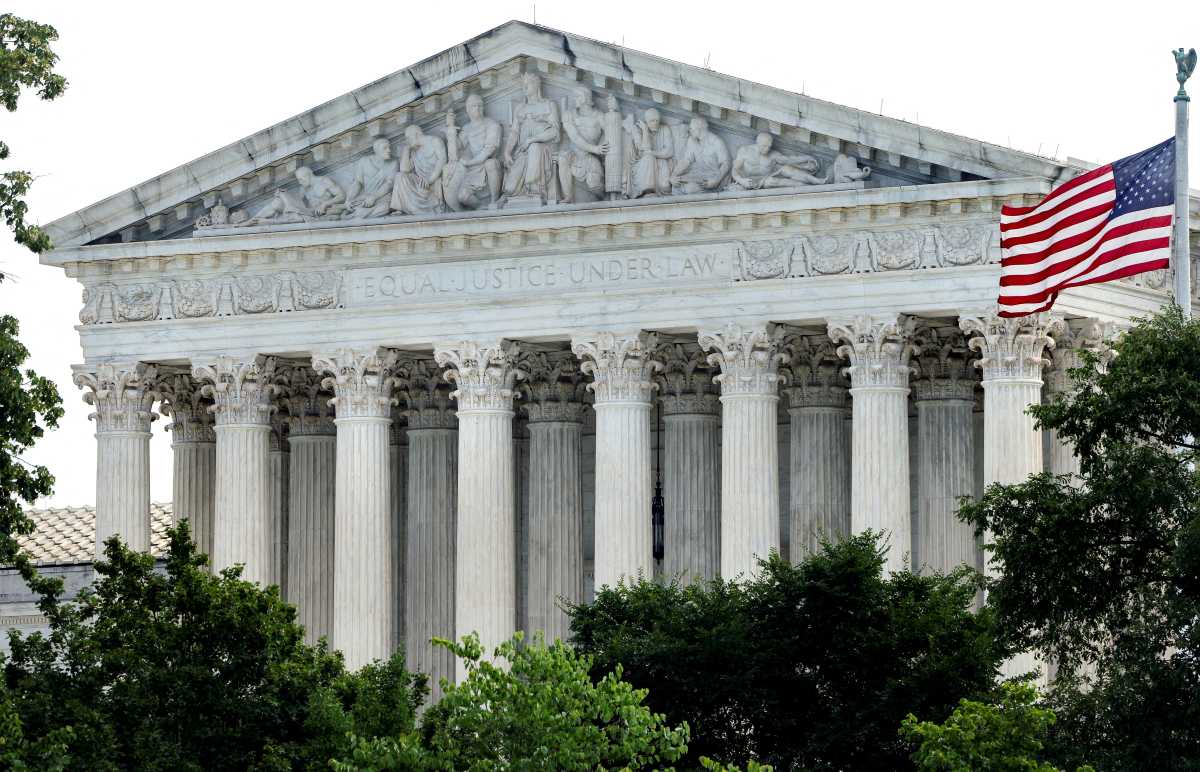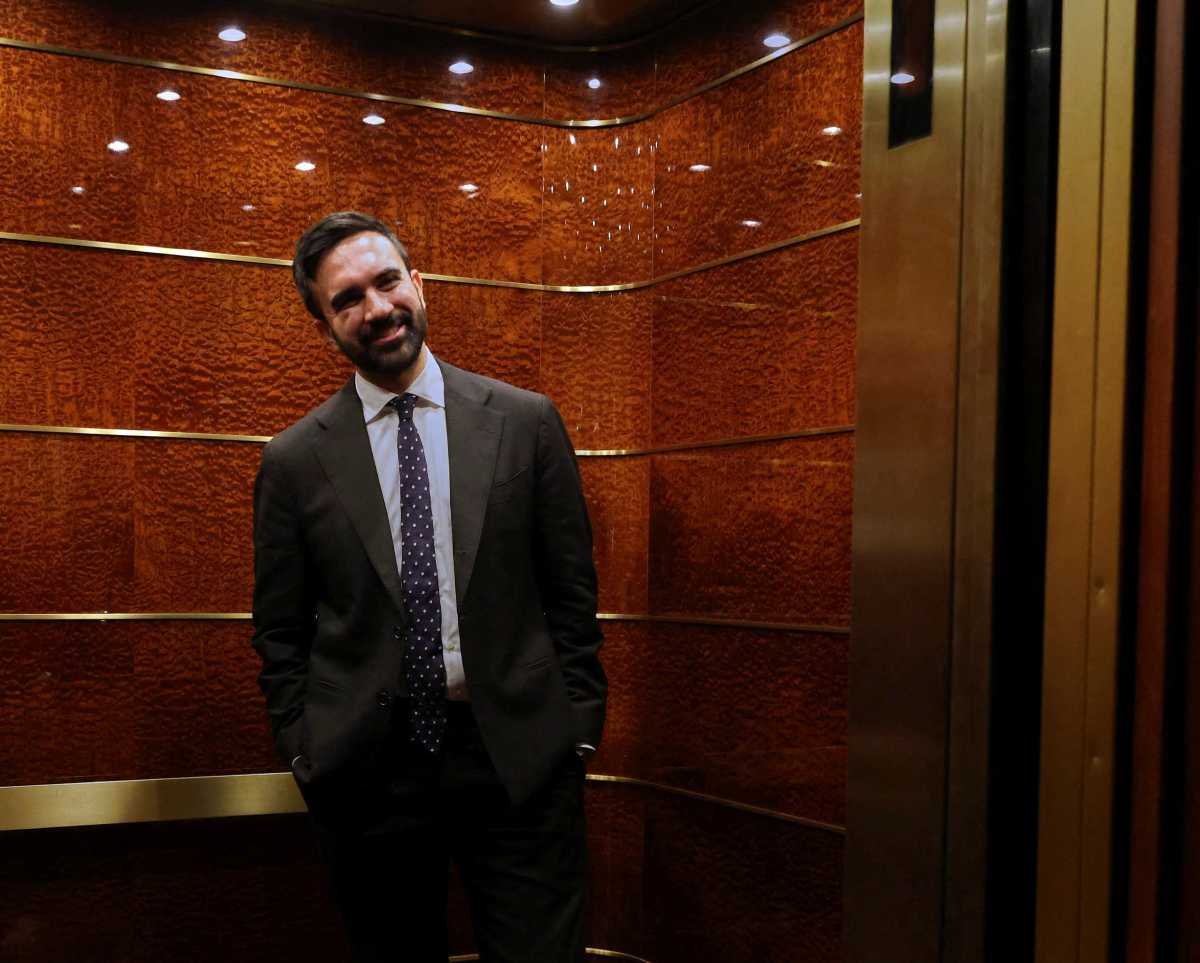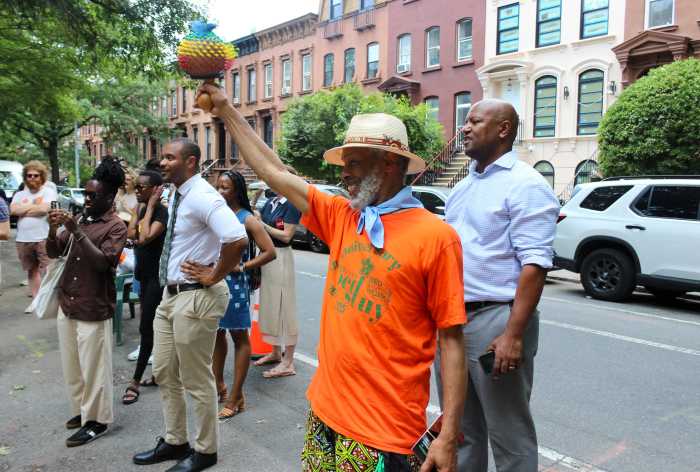By Steven Snyder
A documentary retrospective of Werner Herzog’s odd, mostly true tales
For one adamant corner of the movie world, German director Werner Herzog is nothing short of a hero — a man famous both for making movies about obsessed personalities and for exhibiting the same obsession in the way he approaches his craft. Perhaps most acclaimed for “Aguirre, Wrath of God” and most talked about for “Fitzcarraldo,” in which he hired Peruvian locals to carry a steamship across a mountain, modern audiences may know him best for “Grizzly Man,” a pointed documentary about bear lover Timothy Treadwell, who was mauled to death by one of his beloved creatures in 2003.
Over the decades, Herzog seems to have developed three careers simultaneously, the first as a bombastic, over-the-top fictional director and the second and third revolving around documentaries, both real (“Grizzly Man”) and fake (“The Wild Blue Yonder,” which is actually a sci-fi film that presents itself in documentary form). Perhaps that is what led programmers at Film Forum to curate and host “Herzog (Non) Fiction,” a three-week event that focuses less on Hezog’s fictional endeavors than on the wide range of documentaries and pseudo-documentaries that he has come to be identified by as of late.
It is also a film series that looks forward to Herzog’s “Rescue Dawn,” which is set to open July 4 and represents one of the rare meeting points of Herzog the storyteller and Herzog the documentarian. About the real-life escape of U.S. fighter pilot Dieter Dengler out of a POW camp during the Vietnam war and into the deadly jungles of Laos, Herzog has already approached the topic before, in a 1998 documentary, but this year he returns to it in fictional form, blurring the line between where reality ends and Herzog begins.
The Film Forum retrospective, already a week into its run, has assembled movies from a wide swath of Herzog’s career. Over the next week, Herzog fans can hop between 1993’s “Bells From The Deep,” which quietly observes a mix of religious and spiritual traditions in Russia, including the captivating spectacle of a sect that crawls out onto a frozen lake to view a lost city in its depths, and 1980’s “God’s Angry Man,” which tells the story of evangelist Dr. Gene Scott, formerly a regular on late-night New York television, who one day collected hundreds of thousands of dollars over the span of 30 minutes without once mentioning God.
You can also catch a random assortment of early Herzog shorts on May 31, including a rare early 1966 work titled “The Unprecedented Defence of Fortress Deutschkreuz,” about four men slowly going crazy as they defend abandoned Austrian castles from attack by an imaginary army. And the whole Herzog series comes to a rousing conclusion June 5, 6 and 7 with three films that cut across the Herzog spectrum.
The first, 2005’s “The Wild Blue Yonder,” one of Herzog’s most surreal films to date, is an unlikely mix of archival NASA films, footage from Antarctic underwater surveys and what is supposedly a second look at the supposed alien aircraft that crashed in Roswell, New Mexico. It shows June 5 with 2003’s “Wheel of Time,” about a band of Buddhist monks who make a cross-continent trip to an initiation ceremony in India.
The series ends with two documentaries that focus, in no small part, on Herzog himself. Paired together as a double-bill, 1999’s “My Best Fiend” is Herzog’s own take on his infamous relationship with actor Klaus Kinski, who came to star in five of Herzog’s films, including “Fitzcarraldo” and who repeatedly traded death threats with the director, and 2005’s “Grizzly Man,” the critically-lauded, subjective documentary that mixes Herzog’s narration with actual footage of Treadwell, who insisted on living among the bears, at one point claiming “I will die for these animals.”
Also mixed in with Herzog’s films are a handful of works that the director himself has chosen — documentaries that he considers to be among the best ever made. Dubbed “Werner’s Picks,” a high point of the side series is the May 29 pairing of two great Errol Morris documentaries, “Vernon, Florida” and “Gates of Heaven.” Film critic Roger Ebert has regularly hailed the latter as one of the 10 best films ever made.






































